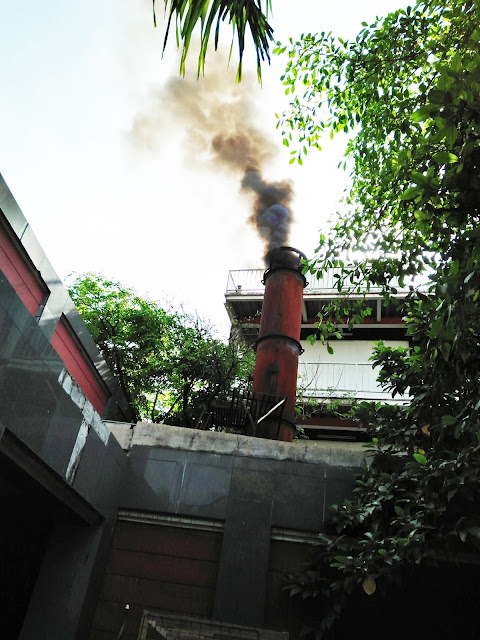EcoWaste Coalition Urges Environmental Law Enforcers to Check Compliance of Crematories to Pollution Prevention Regulations
10 April 2021, Quezon City. With COVID-related deaths reaching a new single-day high of 401 yesterday, the EcoWaste Coalition prodded national and local government authorities to ensure that overworked cremators safely operate in accordance with pollution prevention regulations.
Aside from checking the compliance of crematories to the Clean Air Act and
related regulations, the waste and pollution watchdog group also urged the
authorities to look into the occupational health and safety of funeral service
and crematorium workers amid the piling up of bodies to be cremated.
The group further requested the government to ensure that cremation fees and
the prices of urns are duly monitored and regulated to prevent overcharging
amid increased demand for cremations.
“As overburdened crematoria grapple with rising COVID deaths, we urge our
environmental law enforcers to make it sure that relevant pollution prevention
laws are strictly observed to protect the health of the living, especially
downwind communities, from hazardous air pollutants,” said Thony Dizon,
Chemical Safety Campaigner, EcoWaste Coalition.
To this effect, the group urged the authorities to conduct random inspections
of public and private crematories to check on their compliance to the
requirements of the Clean Air Act and related regulations. A compliant
cremation facility 1) has a valid permit to operate, 2) is a registered
hazardous waste generator, 3) submits quarterly self-monitoring reports, 4) has
an accredited pollution control officer, and 5) has adequate pollution
prevention and control measures to ensure emissions are within “acceptable
levels.”
The group cited a 2018 study on the “Emission
Characteristics of Harmful Air Pollutants from Cremators in Beijing , China
“Our society also has to look after the health and safety of our overburdened
funeral service and crematorium workers, who are COVID-19 frontliners
themselves. We hope they are provided with personal protective
equipment (PPE) kits, are able to adequately rest and are justly compensated,”
said Dizon.
With some facilities reportedly jacking up their fees, the EcoWaste Coalition
urged the authorities to monitor cremation and urn prices and provide subsidies
for those in need.
The EcoWaste Coalition likewise affirmed its support to the recommendations
made by the World Health Organization regarding “Infection Prevention and
Control for the Safe Management of a Dead Body in the Context of COVID-19,”
which, among other things, state that:
“Our society also has to look after the health and safety of our overburdened
funeral service and crematorium workers, who are COVID-19 frontliners
themselves. We hope they are provided with personal protective
equipment (PPE) kits, are able to adequately rest and are justly compensated,”
said Dizon.
With some facilities reportedly jacking up their fees, the EcoWaste Coalition
urged the authorities to monitor cremation and urn prices and provide subsidies
for those in need.
The EcoWaste Coalition likewise affirmed its support to the recommendations
made by the World Health Organization regarding “Infection Prevention and
Control for the Safe Management of a Dead Body in the Context of COVID-19,”
which, among other things, state that:
- “The safety and well-being of everyone who tends to bodies should be the first priority.”
- “The dignity of the dead, their cultural and religious traditions, and their families should be respected and protected throughout.”
- “Hasty disposal of a dead from COVID-19 should be avoided.”
Reference:






Comments